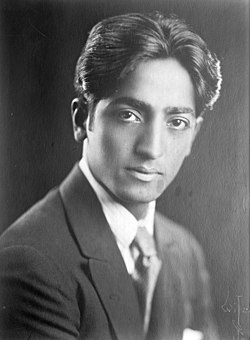Jiddu Krishnamurti Quote
If I am all the time measuring myself against you, struggling to be like you, then I am denying what I am myself. Therefore I am creating an illusion. When I have understood that comparison in any form leads only to greater illusion and greater misery, just as when I analyse myself, add to my knowledge of myself bit by bit, or identify myself with something outside myself, whether it be the State, a saviour or an ideology - when I understand that all such processes lead only to greater conformity and therefore greater conflict - when I see all this I put it completely away. Then my mind is no longer seeking. It is very important to understand this. Then my mind is no longer groping, searching, questioning. This does not mean that my mind is satisfied with things as they are, but such a mind has no illusion. Such a mind can then move in a totally different dimension. The dimension in which we usually live, the life of every day which is pain, pleasure and fear, has conditioned the mind, limited the nature of the mind, and when that pain, pleasure and fear have gone (which does not mean that you no longer have joy: joy is something entirely different from pleasure) - then the mind functions in a different dimension in which there is no conflict, no sense of `otherness'.
If I am all the time measuring myself against you, struggling to be like you, then I am denying what I am myself. Therefore I am creating an illusion. When I have understood that comparison in any form leads only to greater illusion and greater misery, just as when I analyse myself, add to my knowledge of myself bit by bit, or identify myself with something outside myself, whether it be the State, a saviour or an ideology - when I understand that all such processes lead only to greater conformity and therefore greater conflict - when I see all this I put it completely away. Then my mind is no longer seeking. It is very important to understand this. Then my mind is no longer groping, searching, questioning. This does not mean that my mind is satisfied with things as they are, but such a mind has no illusion. Such a mind can then move in a totally different dimension. The dimension in which we usually live, the life of every day which is pain, pleasure and fear, has conditioned the mind, limited the nature of the mind, and when that pain, pleasure and fear have gone (which does not mean that you no longer have joy: joy is something entirely different from pleasure) - then the mind functions in a different dimension in which there is no conflict, no sense of `otherness'.
Related Quotes
Why should we place Christ at the top and summit of the human race? Was he kinder, more forgiving, more self-sacrificing than ? Was he wiser, did he meet death with more perfect calmness, than ? Was h...
About Jiddu Krishnamurti
According to Krishnamurti an "immense energy and intelligence went through [used] this body," a consciousness which he called "the otherness," and which started to reveal itself with the onset of "the process," seizure-like painfull episodes which started in 1922. During his life he tried to share this experience in 'the teachings', famously asserting that "truth is a pathless land," urging for an immediate righteousness without conceptual deliberations and thought. In Krishnamurti's perception, such a righteousness was only possible through a radical transformation of the mind, emphasizing the habit of choiceless awareness, wholeheartedly but with detachment observing the workings and limitations of the mind. A few days before his death he stated that nobody had understood what his body went through, and after his death, this consciousness would be gone, and no other body would support it "for many hundred years."
His supporters — working through non-profit foundations in India, Britain, and the United States — oversee several independent schools based on his views on education, and continue to distribute his thousands of talks, group and individual discussions, and writings in a variety of media formats and languages.
